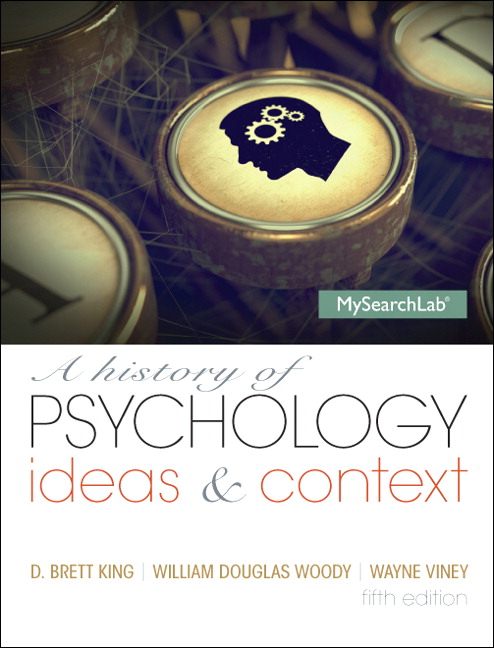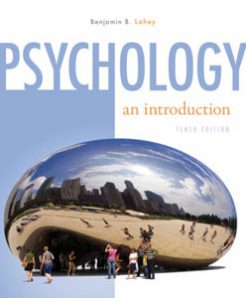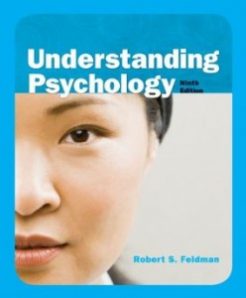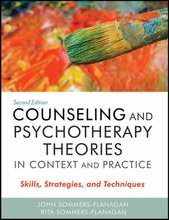Description
Chapter 1
Critical Issues in Historical Studies
- As a self-conscious formal discipline, psychology is
- about 300 years old.
*b. little more than 100 years old.
- only 50 years old.
- almost 500 years old.
[p. 2]
- Each of the following is a reason to study history EXCEPT
* a. History encourages a narrow perspective.
- History teaches a healthy skepticism.
- History teaches humility.
- History is a key to understanding the future.
[pp. 2-4]
- In a broad and philosophical sense, the term historiography refers to
- philosophical questions about history.
- philosophical questions about historical methodology.
- characteristics of a body of historical writings.
* d. all of the above.
[p. 4]
- According to the text, history has an empirical component. The empirical component includes
- attempts by historians to make sense of the data they collect.
- only those rare instances when historians conduct experiments.
- explanations offered by historians.
* d. data such as unpublished letters, diaries, etc.
[p. 5]
- According to the text, history has an explanatory component. The explanatory component includes
* a. attempts by historians to make sense of the data they collect.
- attempts by historians to define history.
- chronological records.
- data such as unpublished letters, newspaper accounts, etc.
[p. 5]
- There are many definitions of history. The definition preferred by the authors of your text is that history is
* a. the interpretive study of the events of the human past.
- the chronology of the events that provide the raw material for the historian.
- the scientific study of the past.
- all of the above.
[pp. 5-6]
- The kind of objectivity that we might reasonably expect of historical writing is that objectivity characterized by
- correspondence between a historical narrative and the events of the past.
* b. an honest attempt to present all sides of an issue.
- an attempt to simply chronicle the events of the past.
- the attempt to leave all feeling out of the historical narrative.
[p. 7]
- The term presentism, as used in the text, refers to
- the correspondence between a historical narrative and the events of the past that it describes.
* b. the difficulties of separating historical facts from present perspectives.
- the attempt to understand the past for its own sake.
- the belief that past traditions and values are always superior to present values.
[p. 7]
- It is almost impossible to separate historical facts from current interests and values. Such a contention is most
consistent with
* a. presentism.
- historicism.
- the chaos hypothesis.
- the cyclical hypothesis.
[p. 7]
- An individual who believes that the human situation is continually improving over time and generations
accepts
* a. the linear-progressive hypothesis.
- the chaos hypothesis.
- the linear-regressive.
- the cyclical hypothesis.
[p. 8]
- The belief that history has no identifiable or universal meaning is
- the linear-progressive hypothesis.
* b. the chaos hypothesis.
- the linear-regressive.
- the cyclical hypothesis.
[p. 9]
- The German term Zeitgeist is relevant to the problem of causality in history. The term refers to
* a. the spirit of the time.
- the spirit of the place.
- the causal role of persons in history.
- the importance of emphasizing biographical studies in history.
[p. 9]
- The German term Ortgeist is relevant to the problem of causality in history. The term refers to
- the spirit of the time.
* b. the spirit of the place.
- the causal role of persons in history.
- the importance of emphasizing biographical studies in history.
[p. 9]
- When considering the forces that shape history, one must be cautious to avoid hagiography, the
- tendency to attribute historical change to only impersonal forces
*b. tendency to give individuals excessive credit for historical developments
- tendency to ignore the interplay between individuals and context
- tendency to emphasize an internalist perspective
[p. 10]
- Internalist or old histories of psychology emphasized
- the social-cultural context in which a discipline develops.
- the cumulative knowledge of the network of historical experts in a given area of history.
* c. the development of ideas within a discipline with little discussion of the larger context.
- the socially acceptable historiographic biases that prevail at a given time.
[p. 10]







Reviews
There are no reviews yet.